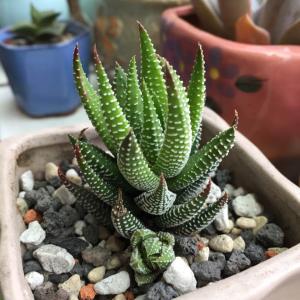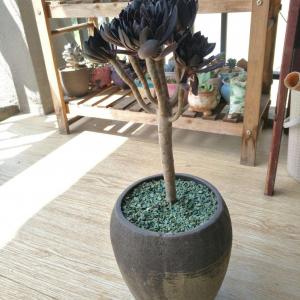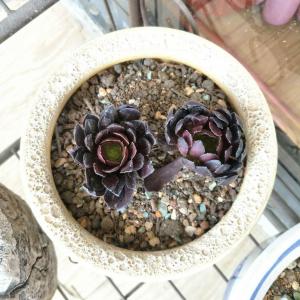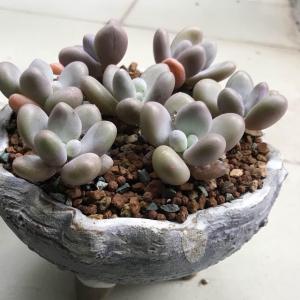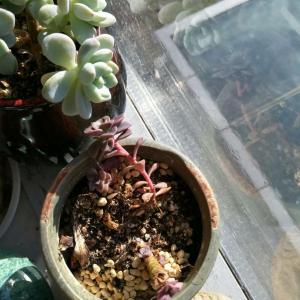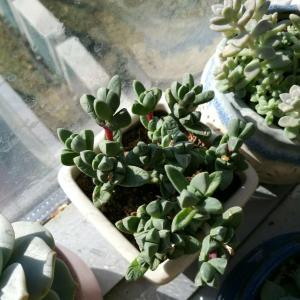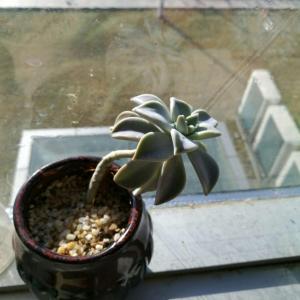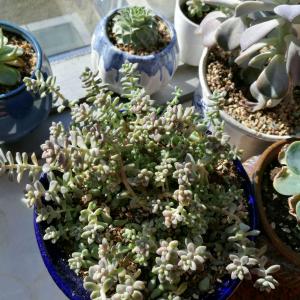成长记
echo_zly
2018年04月21日

4月12日花苞半开,隔天就全开了,能开五天左右掉花瓣。目前发现真宙的缺点只有枝条软易垂头,花朵软倒挂干花没型,其他表现都很不错,橘粉色,淡香,勤花,少病害





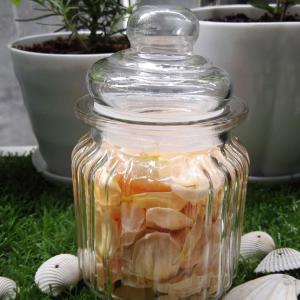






0
0
文章
Miss Chen
2018年04月09日

Eggplant (Solanum melongena) is winter hardy and perennial in U.S. Department of Agriculture plant hardiness zones 9 to 12, but in most parts of the country it is grown as an annual garden vegetable. It is not tolerant of cold temperatures, and for good fruit development, it requires a long frost-free growing season. The plant is thought to have originated in India more than 1,500 years ago and to have come to North America with Spanish explorers sometime before the 19th century.
Seedlings
Eggplant seeds take one to two weeks to germinate after they're planted, and seedlings will be big and sturdy enough to transplant outdoors within six to 10 weeks after germination. Young plants are vulnerable to damage from frost and cold temperatures, so seedlings shouldn't be transplanted until the soil is warm, nighttime temperatures are consistently above 65 degrees Fahrenheit, and all danger of frost has passed.

Mature Plants
Mature plants are relatively large with branching stems, and their large leaves are oval-shaped or lobed, with a hairy, sometimes spiny, texture. Most eggplant varieties grow to a height of between 2 and 4 feet and may need support from a stake or cage when they're laden with heavy fruit. Some varieties, however, are compact and remain less than 2 feet tall.
In mid-summer, plants bloom with star-shaped purple flowers which occur either singly or in clusters of two blossoms.
The optimal daytime temperature for the plant's growth is between 70 and 85 degrees F, and if temperatures are above 95 degrees F, flowers and fruit may not develop properly.
Fruit Development
The flowers develop into fruit that, depending on the cultivar, vary in size, color and shape. The varieties traditionally grown in the United States produce fruit that is oval or pear-shaped and up to approximately 9 inches long, with a thick purple-black skin and dense white inner flesh. Varieties known as Asian, Chinese or Japanese eggplant produce fruit that is more elongated and slender. The fruit of other cultivars may be white, green, light purple or striped.

Eggplant fruit is ready for harvest when its skin is smooth and shiny and its flesh is firm. Fruit with dull or wrinkled skin or soft flesh is over-ripe; at this stage, the fruit's skin will be tough and its flavor likely bitter. Mature fruit is typically ready to harvest about 70 days after the plants have been set in the garden.
Seedlings
Eggplant seeds take one to two weeks to germinate after they're planted, and seedlings will be big and sturdy enough to transplant outdoors within six to 10 weeks after germination. Young plants are vulnerable to damage from frost and cold temperatures, so seedlings shouldn't be transplanted until the soil is warm, nighttime temperatures are consistently above 65 degrees Fahrenheit, and all danger of frost has passed.

Mature Plants
Mature plants are relatively large with branching stems, and their large leaves are oval-shaped or lobed, with a hairy, sometimes spiny, texture. Most eggplant varieties grow to a height of between 2 and 4 feet and may need support from a stake or cage when they're laden with heavy fruit. Some varieties, however, are compact and remain less than 2 feet tall.
In mid-summer, plants bloom with star-shaped purple flowers which occur either singly or in clusters of two blossoms.
The optimal daytime temperature for the plant's growth is between 70 and 85 degrees F, and if temperatures are above 95 degrees F, flowers and fruit may not develop properly.
Fruit Development
The flowers develop into fruit that, depending on the cultivar, vary in size, color and shape. The varieties traditionally grown in the United States produce fruit that is oval or pear-shaped and up to approximately 9 inches long, with a thick purple-black skin and dense white inner flesh. Varieties known as Asian, Chinese or Japanese eggplant produce fruit that is more elongated and slender. The fruit of other cultivars may be white, green, light purple or striped.

Eggplant fruit is ready for harvest when its skin is smooth and shiny and its flesh is firm. Fruit with dull or wrinkled skin or soft flesh is over-ripe; at this stage, the fruit's skin will be tough and its flavor likely bitter. Mature fruit is typically ready to harvest about 70 days after the plants have been set in the garden.
0
0









